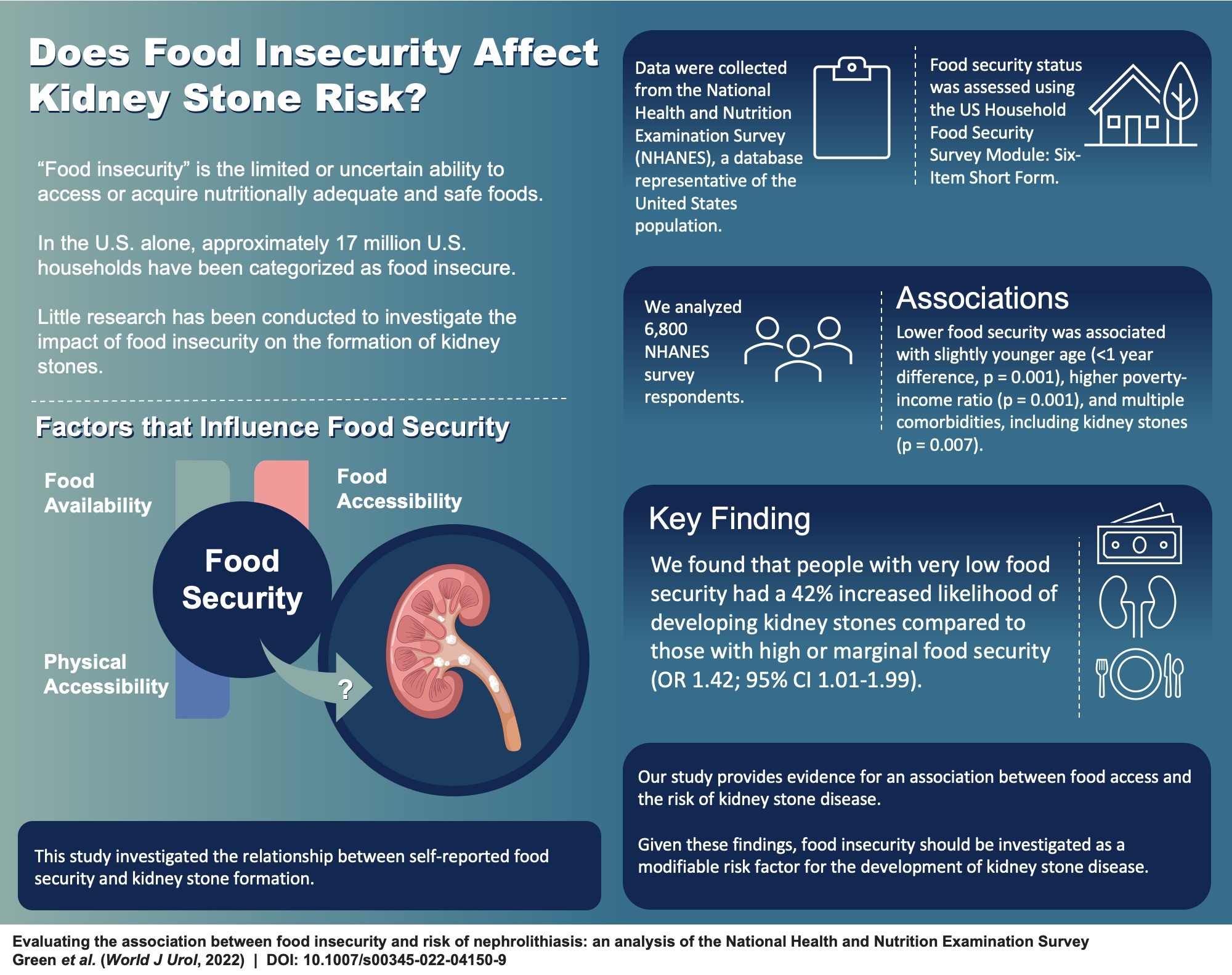Food insecurity is the limited or uncertain ability to access or acquire nutritionally adequate and safe foods. Up to 15% of the United States population is classified as food insecure, and, until now, there has been no research to investigate the potential impact of food insecurity on kidney stone disease. We conducted an analysis of the National Health and Nutrition Examination Survey (NHANES) and found that people who are food insecure were more likely to have kidney stone disease, even after controlling for age, race, and medical comorbidities.

These findings underpin the importance of screening for unmet social needs in kidney stone patients, as food insecurity may be a contributor to kidney stone disease.
Written by: Benjamin W. Green, Kevin Labagnara, Eric Macdonald, Nathan Feiertag, Michael Zhu, Kavita Gupta, Charan Mohan, Kara L. Watts, Arun Rai, Alexander C. Small
Department of Urology, Montefiore Medical Center, Albert Einstein College of Medicine, Bronx, NY, USA., Smith Institute for Urology, Northwell Health System, New Hyde Park, NY, USA.
Read the Abstract


